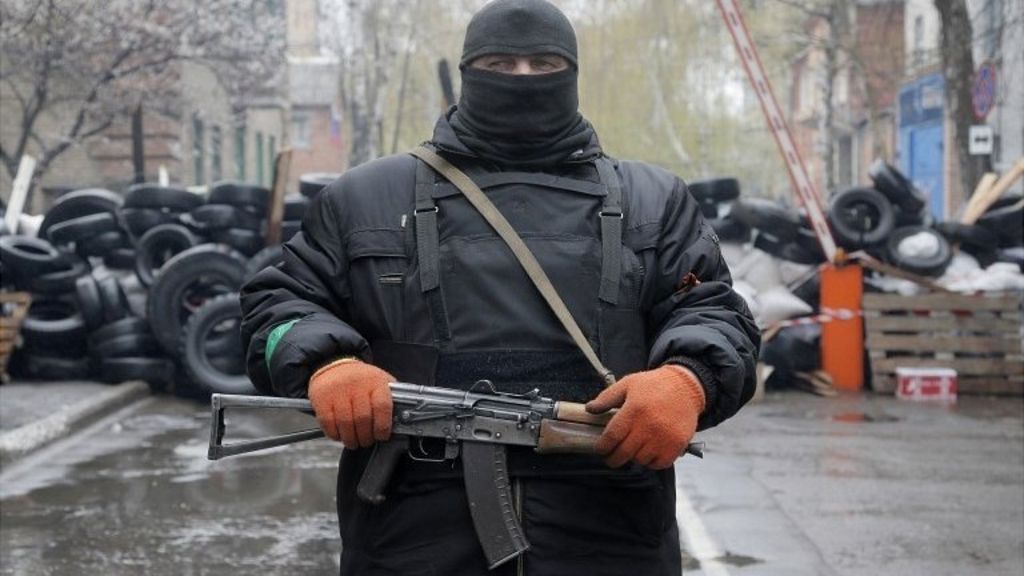
An Explosive NYT Report Shows How CIA
Fed Russia’s Worst Fears to Prompt Invasion
Mark Episkopos /Responsible Statecraft
(February 27, 2024) — The White House’s messaging on the Ukraine war is built around two simple-yet-powerful adjectives: “We are united in our condemnation,” said President Joe Biden almost two years ago in a joint statement with EU Commission President Ursula von der Leyen, “of Russia’s unjustified and unprovoked war of aggression against Ukraine.”
The “unjustified and unprovoked” line has been used numerous times by a chorus of top U.S. officials and allies, quickly becoming a rhetorical mainstay of Biden’s maximum pressure campaign against the Kremlin.
This messaging conflates two important, yet fundamentally different issues. There is little question that Russia’s invasion has wrought a horrific human toll on Ukraine and upended European security in ways that few anticipated prior to February 2022. But it is also not without its context, which includes a litany of grievances that — however unjustified from the perspective of the West — constitute what the Kremlin saw as sufficient provocation to initiate the most destructive war in Europe in 1945.
An explosive New York Times exposé by Adam Entous and Michael Schwirtz sheds light on major developments preceding the full-scale invasion of Ukraine. According to the report, the Ukrainian government entered into a wide-ranging partnership with the CIA against Russia. This cooperation, which involved the establishment of as many as 12 secret CIA “forward operating bases” along Ukraine’s border with Russia, began not with Russia’s 2022 invasion, but just over 10 years ago.
Within days of the February 2014 Euromaidan Revolution that culminated with the ouster of President Viktor Yanukovych and ushered in a firmly pro-Western government, the newly appointed head of the Security Service of Ukraine (SBU), Valentyn Nalyvaichenko, reportedly proposed a “three-way partnership” with the CIA and MI6, the UK’s foreign intelligence service. Ukrainian security officials gradually proved their value to the U.S. by feeding the CIA intelligence on Russia, including “secret documents about the Russian Navy,” leading to the establishment of CIA bases in Ukraine to coordinate activities against Russia and various training programs for Ukrainian commandos and other elite units.
A graduate of one such CIA training program, then-Lt. Col. Kyrylo Budanov, went on to become the chief of Ukrainian military intelligence.
Kyiv routinely pushed this relationship’s boundaries, violating the Obama administration’s red lines around lethal operations by carrying out assassinations of high-profile Russian fighters on territory controlled by Russian-aligned separatists. The Kyiv-CIA partnership deepened under the Trump administration, yet again putting the lie to the baseless idea that former President Trump was somehow amenable to Russia’s interests while in office.
As Budanov reportedly put it, “It only strengthened. It grew systematically. The cooperation expanded to additional spheres and became more large-scale.” This cooperation, as painstakingly outlined by the Times, went far beyond helping Ukraine defend itself against Russia in a narrow, technical sense — rather, Ukraine was drawn into a Western coalition for the purpose of waging a broad-based shadow war against Russia.
The New York Times’ exposé offers no shortage of disturbing implications. Ukraine is, needless to say, a sovereign state in charge of determining its own security arrangements. The underlying issue is not whether Ukraine is within its rights to enter into this kind of relationship with the CIA, as it obviously is, nor is it whether the Maidan Revolution put Ukraine on a certain path toward political cooperation with Western entities.
The problem, rather, is one of basic security perceptions. Moscow repeatedly warned — for many years before 2014 — that it was and remains prepared to take drastic action to prevent Ukraine from being used by the West as a forward operating base against Russia. Yet that, as recounted in lurid detail by The New York Times, is precisely what has happened over the past 10 years.
The fact that Ukraine has not just willingly but enthusiastically submitted to this arrangement is immaterial to Russia’s core concerns. Nor can this issue be entirely reduced to NATO membership: Ukraine can play the role of an anti-Russian outpost on NATO’s eastern flank without ever formally joining the alliance, and this, too, is unacceptable to the Kremlin.
Justification is by nature a subjective exercise, but there can be little question that the activities described in this exposé constitute, from the Kremlin’s perspective, a dire provocation and would be seen as such by the United States if the situation were reversed and a rival superpower established such bases in Mexico. This perception is an inseparable part of the military and political context that shaped this war’s outbreak. It can be dismissed as paranoid, but if so it is a paranoia common to all security establishments.
It is unclear what concrete U.S. interests these joint intelligence activities served. They certainly did not facilitate de-escalation between Moscow and Kyiv or promote regional stability, goals ostensibly shared by the Obama and Trump administrations. On the other hand, it is quite easy to see how Kyiv’s deepening relationship with the CIA needlessly fed into Moscow’s worst security fears and precipitated its conclusion — whether justified or not — that it must act decisively in the face of an implacable conflict with the West over Ukraine.
Mark Episkopos is a Eurasia Research Fellow at the Quincy Institute for Responsible Statecraft. He is also an Adjunct Professor of History at Marymount University. Episkopos holds a PhD in history from American University and a masters degree in international affairs from Boston University.
The views expressed by authors on Responsible Statecraft do not necessarily reflect those of the Quincy Institute or its associates.
Posted in accordance with Title 17, Section 107, US Code, for noncommercial, educational purposes.